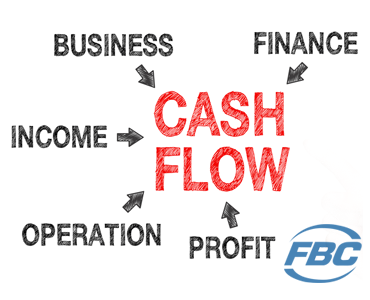Last updated: Feb. 6, 2019
When you run a small business, one of the most important things you’ll find yourself doing on a periodic basis is tracking the amount of cash going in and out of your business – or in accounting jargon, cash flow.
However, as an entrepreneur you’re to juggling many responsibilities all at once and you may overlook managing your cash flow, which can lead to legal problems down the line.
You can avoid legal problems in cash flow management from happening by doing the following:
Draft a Contract to Maintain Steady Cash Flow
You may have previously agreed to provide specific goods or services to another company’s project. However, the other company might think that they can pay you only after their project has reached full completion, which can result in negative cash flow for your small business since you spent a good deal of money on those goods or services you provided.
The ultimate goal of cash flow management is to ensure that your business has a positive cash flow – or more simply put, a higher amount of earnings than expenses.
However, verbally asking for a client company’s payment can get awkward for either of you, not to mention that it can lead to legal wrangling later on in case any of you gets into a dispute about it.
You can avoid the awkwardness with a contract explicitly stating that they need to pay you the total cost of the products and services you provided for their project. You can look up any of the various contract templates available online to give you an idea of how to write one.
Just make sure to exclude any retainage provisions from the contract as you don’t want your client company to withhold their final payment to you until their project is already complete.
Use an Online Cash Flow Calculator Instead of Manually Calculating the Money Going In And Out of Your Business
One of the biggest reasons you may have skipped on monitoring your small business’s cash flow is that you may have mistakenly thought that you’ll need a pen, paper, an ordinary calculator, and some math skills for that.
You’ve set out to become an entrepreneur after all and not some number cruncher hunched on a table for hours.
But with technology making everyone’s lives easier nowadays, there’s virtually no excuse for you to mismanage the cash flow of your business.
You can use a comprehensive cash flow calculator that you can access online to make it faster for you to determine whether your business has positive or negative cash flow.
Limit Any Expenses Directed Towards Your Business That Won’t Help It in The Long Run
You need to think long-term when dealing with all business-related expenses. Ask yourself every time you feel the urge to purchase something for your business if it’s really a need or just a want.
For instance, a piece of machinery that can help your business produce more products faster is a need. A luxury office chair that you want to purchase because most of your fellow entrepreneurs have one is a want.
You have to ditch the idea of buying the luxury office chair and spend part of your earnings on new machinery to fuel your business’s long-term growth.
Consider Adding New Products or Services That You Can Offer During Lean Months
If your small business is a seasonal one and you earn a high amount only on certain months of the year, you have to think of ways to keep the profits coming in despite the low demand.
You can offer something new to your customers during the months when they don’t buy as much of your main product or service.
Let’s say your small business is an ice cream shop. You may have an influx of cash during summertime when people crave for ice cream. However, once winter strikes, you may find yourself having to deal with negative cash flow for at least 3 or more months. To offset any loss of revenue, consider offering hot coffee and hot chocolate aside from your usual ice cream to keep your steady stream of customers and income.
Consider yourself lucky if the small business you’ve established will last for at least 5 years or more as 96% of enterprises fail only a mere full year after their owners had put them up.
Some of the owners of these businesses may have even run into trouble with the law after their lack of cash had caused them to miss out on paying their bills and any debts.
To avoid any legal problems that can become an insurmountable hurdle you may never get out of, you should manage your small business’s cash flow by doing the things listed above.
